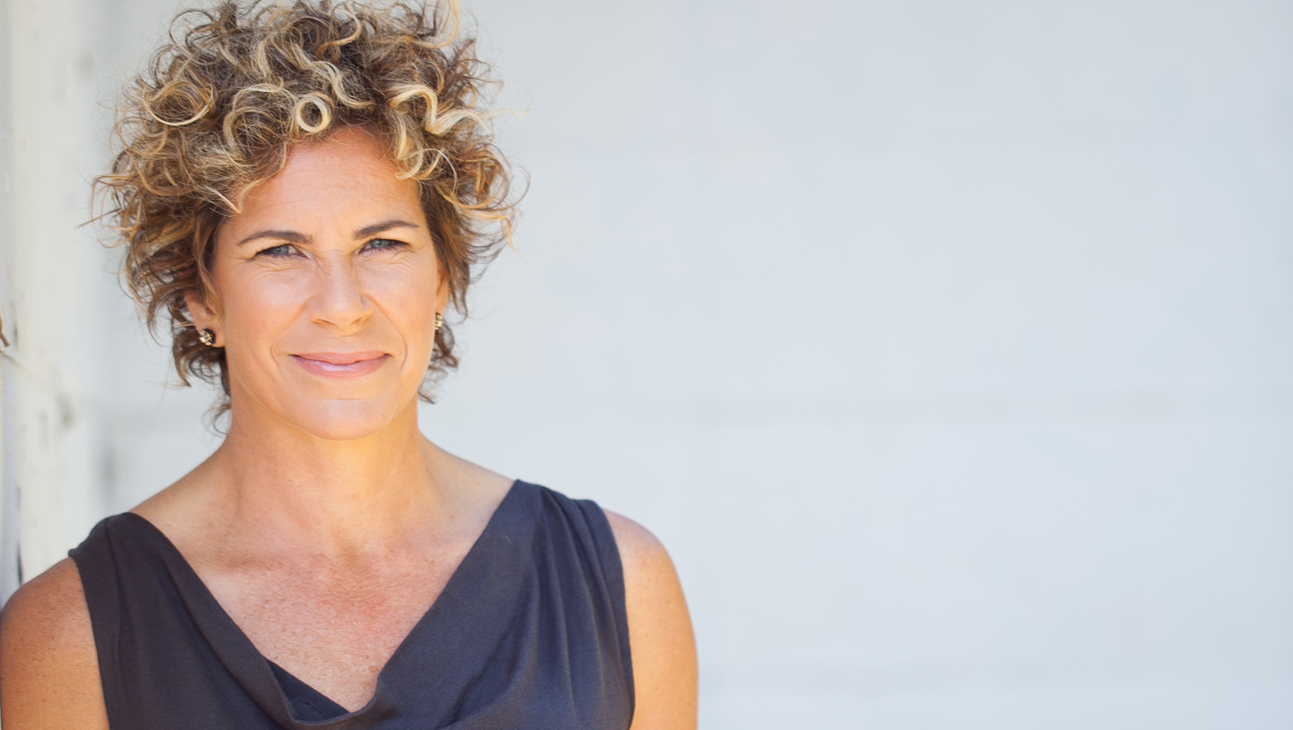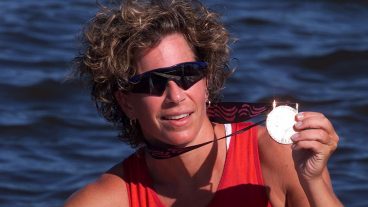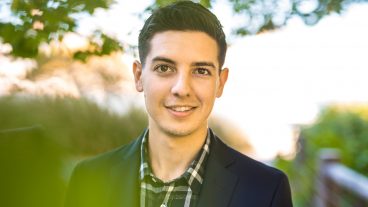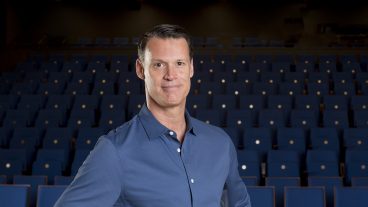Three-time Olympic gold medallist Marnie McBean has had to adapt her role over the past year as Team Canada’s chef de mission at the postponed Tokyo Summer Olympics. But, she has remained consistent in her goal of creating a safe and welcoming environment for Canadian athletes to be their authentic selves.
Marnie is one of Canada’s most decorated Olympians, having won three golds with her former rowing partner Kathleen Heddle, a record for Canadian Summer Games athletes that still stands today. In July 2019, she was named Canada’s chef de mission for the 2020 Tokyo Olympics (postponed to 2021) to act as a spokesperson for Team Canada as well as a mentor for the athletes, coaches, and staff.
Ahead of the 2021 games, Marnie spoke with Sportsnet on her experience coming out post-retirement, the many changes she made as chef de mission in response to the pandemic, and more. Below is a segment of her interview, read the whole article here.
Coaching Athletes Through a Pandemic
SPORTSNET: As chef de mission, how are the preparations for the Olympics? I’m sure it’ll be different than what you expected.
MARNIE MCBEAN: I think when I get to 14 days away from going to Tokyo, I’ll start getting into the easy bits, because it’s almost like when you’re traveling and you finally leave the house and whatever you’ve forgotten, you’ve forgotten… I can’t imagine what would derail the games at this point in time — I don’t even want to guess, because it’s that kind of year that it would actually happen.
The athletes are a group of rule followers, so they totally get the structure of doing this. And I think my expectations for Tokyo, there’s two sets: There’s the expectation of my experience as chef de mission and what do I expect from the team…
I know I’m going to be in the Olympic Village. We don’t have an athlete lounge, which historically I always thought was a great place for incidental and almost accidental conversations. (But) the thing I’ve learned about roles like mine, mentoring and stuff like that, is there’s often a really hidden impact. And the people you think you’re there to help, you might end up helping an entirely different population. And it makes a huge impact.
And from the team, I actually expect something kind of extraordinary. We have been in a vacuum of results, but in a surplus of training. I remember one of our athletics athletes in 2012. He was the world champion in shotput. And he was pretty sure he could get like a world-best throw at the Olympics, but he would have to stay home and train for it the whole time. Instead, he was going to go around Europe and do Diamond League and stuff like that and make an income that was going to support his family for decades.
So here they are. They’re now at home, with these incredible training blocks. I don’t know what their results are going to be, but I know that their performance is going to be extraordinary.
Did your mentality, your mindset as chef de mission, change at all with the postponement and the idea of no fans?
I had to reset everything. I was selected as chef in July 2019… In January we realized there was something going on. In February I had a trip to Japan canceled already.
When we got to the decision-making in March, it was like, we can’t just be there walking along thinking we’re all good. Actually, Chicken Little kept saying the sky is falling. So, my messaging from March to May was probably more into care and comfort. “Stay at home, take care of your family. Thank you for organically embracing what we need to do.” I was this care-and-comfort person. If you ask most people who competed against me, those might not have been my strong suits when I was an athlete. But coming through to this side of it, having mentored for so long and also having my own family, it was definitely an easier voice to have.
Recently, I switched it up and started going, “Okay, look, there’s a Games coming up and we have to start talking about performance again — ramping back up.”
So, yes, I totally had to adjust my conversation… Now we’re into the fine tuning, and it’s kind of like, “Believe in perfect, but let perfect go. If you’re waiting for perfect, it’s never going to come. Unchain yourself from that burden and you’re on the right path — just believe in it.”
Being an LGBTQ+ Ambassador
Your journey to self-discovery in terms of your sexuality came after you retired from rowing. How did that come about and what was that experience like for you as a retired athlete?
It was funny. It was just really a weird team in that we really didn’t focus on our personal life. Not in the way that people were told to leave your personal life out the door — we just were so focused on what was going on in the water.
I don’t think I knew a gay person … who was (out). So there was no one for me to go, “Oh, maybe that’s why I can’t find any guy that I fit with. I can’t figure out where I belong.” And so I think it took until I came out of sport and I just kind of chilled and I stopped focusing so much on rowing that the world got a lot bigger and I started letting more people into my circle…
There was also such an advantage in that I was in my 30s at the time. I had my own house. I kind of just did what I wanted to do. Certainly I was in the closet for a while, because I was trying to figure out, “Is this a phase?” Like, “What’s going on?” And then I’m like, “This is definitely not a phase.” And it wasn’t until my first broken heart that I was like, “Well, I can’t go through this in the closet. I can’t do that. I have to come out because I just need more support…”
And this is part of Pride. For a long time, I felt really comfortable on Church Street, but it was one of those things where you’d be holding people’s hand and then as soon as you crossed Jarvis, (you let go) as you’re getting too close to Bloor.
But then I got stronger again.
I think to some extent that’s why I embrace and I’m very proud to be an ambassador of the LGBT community. But I have a tough time speaking as a member of the sport community doing it, because I don’t have that experience. I never had to overcome, you know, a bias…
I remember at the beginning (of my time as chef), I said, “Well, I just want people to be their authentic self.” And I meant it in a far broader sense than just being part of the LGBT community — and when I say that, I do mean the LGBTQI2S+, of course.
But I think your authentic self is so many different things, right? It is your sexuality. It is your gender expression. It is whether you want to be an extrovert like me or an introvert like Kathleen. I really want people to be authentic. I want all of our introverts on the team to know that you don’t have to be (loud) to be a champion. Because Kathleen was by far the better athlete than me. And your authentic self is being authentically true and understanding how you want to represent your race and your culture, your faith — and all these things are who you are.
I want to be the chef to that team.
On Being an Ally
This has been a great year for learning what our unconscious biases are, where they’ve been parked, and what it means to be an ally. One of the most important things to talk about, to me, is default language. That’s what I’ve learned is what I want from my allies, so that’s what I want to give. Default language: Checking those things that put people in a corner and a language that excludes and that forces someone to come out every moment of their day and, you know, define themselves.
Drawing on her years of experience as a top competitor, Marnie McBean leaves audiences with a recipe for success that can be applied to all endeavours. She is a member of Canada’s Sports Hall of Fame as well as an Officer of the Order of Canada.
Interested in learning more about Marnie and what she can bring to your next event? Email us at [email protected].




